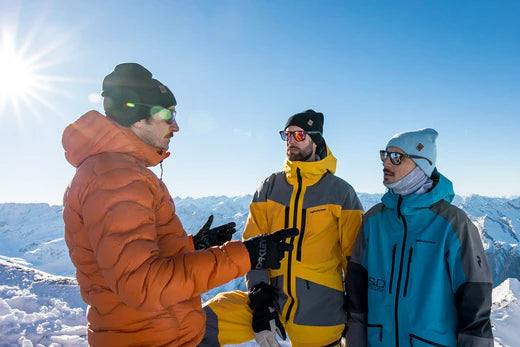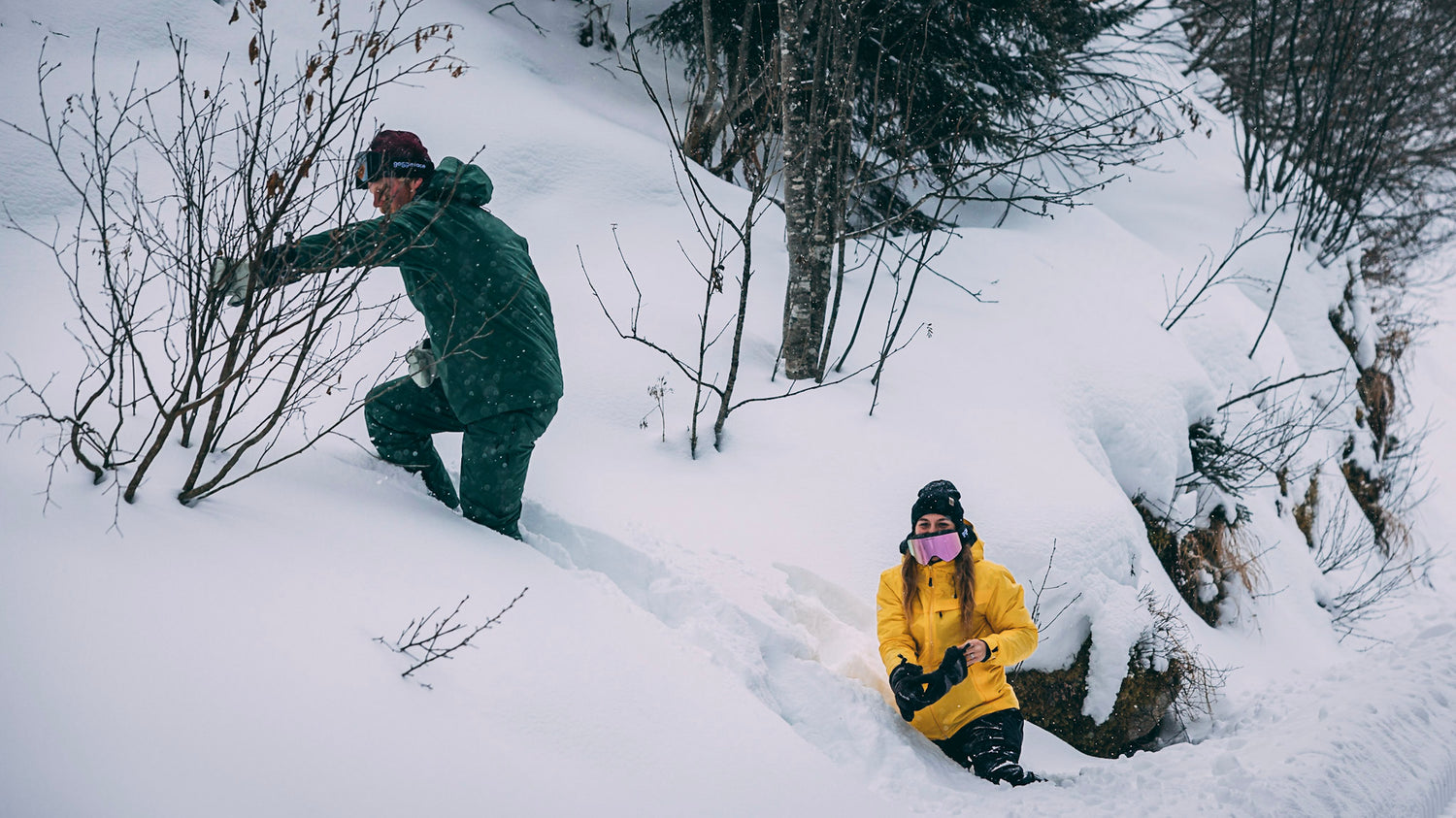Are you ready to hit the mountains with your ski gear packed? While warm clothing and ski equipment are likely at the top of your list, you might be wondering, “Do I really need sunglasses for winter sports?” The answer is yes! Sunglasses for winter sports are not just an extra accessory; they provide essential protection against bright sunlight and harmful UV rays, which are stronger at higher altitudes. In this blog, we’ll discuss why snow sunglasses are indispensable, what to look for when choosing the right pair, and answer frequently asked questions about sunglasses for winter sports.
Sunglasses for snow: essential protection against UV rays
Sunglasses for winter sports offer more than just comfort. Due to the unique conditions in the mountains, proper eye protection is crucial. Here are three key reasons why you shouldn’t go without them:
Protection against UV rays
Did you know that UV radiation is much more intense at higher altitudes? For every 1,000 meters you climb, UV exposure increases by about 10%. Additionally, snow reflects up to 80% of these rays, further increasing exposure. This can lead to a painful condition called snow blindness, where the eyes are damaged by the sun. Sunglasses with UV400 protection block 100% of UVA and UVB rays, providing the necessary protection.
Glare from snow
The sun reflecting off a snowy landscape can be blinding and impair visibility. This is not only inconvenient but also dangerous when skiing or snowboarding at high speeds. Sunglasses with polarized lenses filter out these reflections, providing better contrast and sharper vision, allowing you to spot uneven terrain in the snow more easily.
More comfort and focus
The bright light in the mountains can be tiring for your eyes, causing them to become fatigued and reducing sharp vision. With the right sunglasses, you can prevent eye strain, stay on the slopes longer, and focus better on your descent. Additionally, well-fitting sunglasses also protect your eyes from wind and cold air.
What to look for when choosing sunglasses for snow?
Now that you know why sunglasses for winter sports are important, it’s time to choose the perfect pair. Here are the key features to look for:
UV400 protection: This is a must. Choose sunglasses that block 100% of both UVA and UVB rays.
Polarized lenses: Polarized sunglasses prevent glare from the sun on the snow, allowing you to see everything in high clarity without being blinded.
Lens color: Not all colors are suitable for every weather condition. Gray lenses are ideal for sunny days, while brown or amber lenses offer better contrast, which is helpful on cloudy days or in shaded parts of the slope.
Durability and fit: Winter sports are intense, so your sunglasses need to withstand impact. A sturdy frame and comfortable fit are essential to ensure the sunglasses stay in place while skiing.
Wraparound protection: Choose sunglasses with larger frames that cover the sides of your eyes, preventing UV rays or wind from sneaking in.
FAQs about sunglasses for winter sports
What’s the difference between snow sunglasses and regular sunglasses?
Sunglasses for winter sports offer specific advantages such as better UV protection, polarized lenses, and durable construction suitable for cold, intense conditions. Regular sunglasses may provide some protection but often lack the advanced features your eyes need in the mountains.
Should I bring both ski goggles and sunglasses?
Yes, it’s a good idea! Ski goggles provide protection during skiing, especially in heavy fog or snow, while sunglasses are ideal for sunny days on the slopes and during breaks when you’re enjoying the view. Alternating between the two offers maximum flexibility and comfort.
Which lens color is best for cloudy days?
On cloudy days, yellow or orange lenses work best as they enhance contrast and improve visibility in low light. This helps you see depth changes and obstacles more clearly, even in poor light conditions.
Are expensive sunglasses better for winter sports?
While a higher price doesn’t always guarantee quality, more expensive sunglasses often offer better protection and materials that last longer. The most important thing is to choose reliable sunglasses with UV400 protection and polarized lenses, regardless of the price.
How to ensure your sunglasses last long?
Once you’ve found a pair of sunglasses that fit your winter sports needs, proper care is essential. Here are some tips:
- Store them in a protective case: This prevents scratches or damage when they’re in your bag.
- Use a microfiber cloth: Clean the lenses regularly with a microfiber cloth to remove dirt and dust without causing scratches.
- Avoid extreme temperatures: Don’t leave your sunglasses in extreme heat or cold, as this can damage the frame and lenses.
The style factor: sunglasses that look great on the slopes
Sunglasses for winter sports are not only protective but also a stylish accessory. Winter sports often involve social moments and time with friends. A good pair of sunglasses adds that extra flair to your outfit and is perfect for après-ski moments and photos. Choose sunglasses that match your style and show you’re well-prepared for the mountains!
Conclusion
Sunglasses for winter sports are essential for anyone heading to the mountains, whether you’re an experienced skier or an enthusiastic beginner. With proper protection against UV rays and glaring snow, you’ll enjoy your holiday longer and more safely. Make sure to choose sunglasses with UV400 protection, polarized lenses, and a durable fit, so you can hit the slopes with peace of mind. And remember, beyond functionality, sunglasses are a stylish addition to your winter sports outfit. Pack your sunglasses, head to the mountains, and get ready for an unforgettable winter experience!


